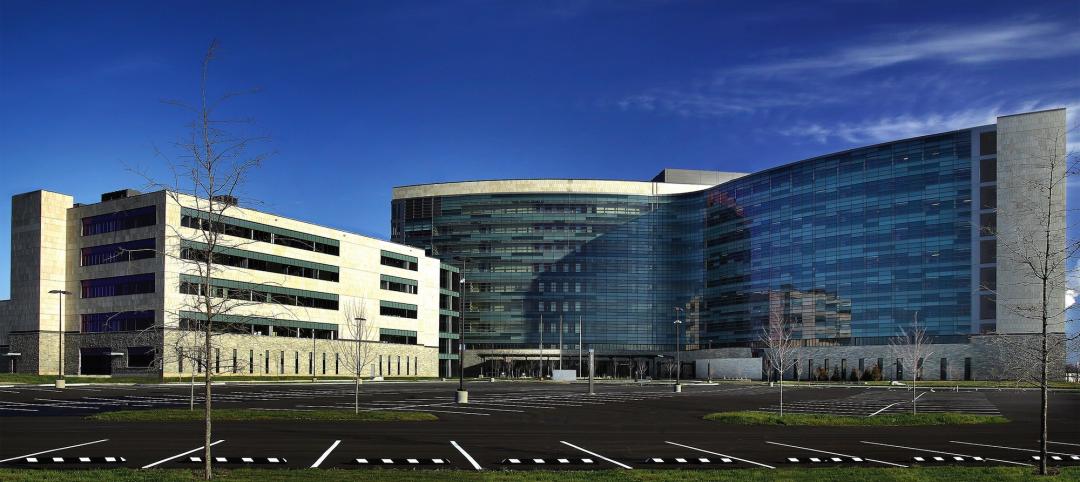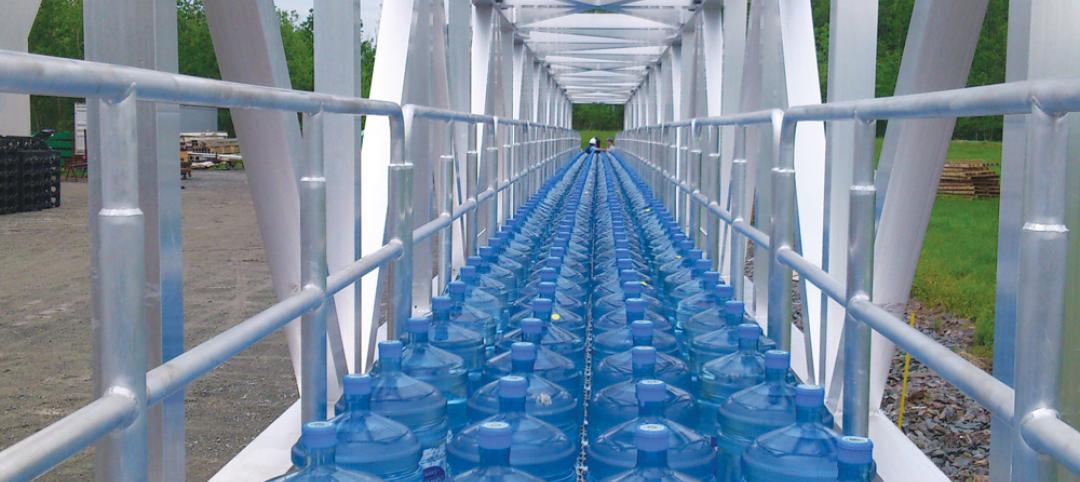In the latest chapter of the industry’s ongoing consolidation saga, two of the top 50 architecture/engineering firms, DLR Group and Westlake Reed Leskosky (WRL), are joining forces, bringing together companies with 1,000 employees in 26 locations worldwide.
This is the second addition to its stable in the last 14 months for Omaha, Neb.-based DLR. In July 2015, it acquired SORG Architects, which works primarily in the Washington D.C. area, and will now operate as DLR Group|Sorg|Westlake Reed Leskosky.
The 112-year-old WRL, founded by the youngest son of U.S. President James Garfield, will extend DLR’s presence into such eastern metros as Cleveland (WRL’s headquarters city), New York, and Charlotte. “Strategically, this increases the geographic reach of both firms,” said Griff Davenport, chief executive of DLR, which turns 50 this year.
Paul Westlake, FAIA, FACHA, WRL’s Managing Principal, added that there is little overlap of practice type specialization or clientele between the two firms, and that he sees “lots of opportunities” for DLR to fatten its nine practices on these new markets. Right before the deal was announced, Westlake informed a university president about the merger, “and he said that the university had three projects on the horizon that fit DLR’s specialties.”
Westlake considered DLR’s K-12 practice to be “the best in the country,” whereas Davenport singled out WRL’s Cultural and Performing Arts practice, a sector where the two firms had worked together on projects previously.
Other practices for the combined firm include Energy Services, Hospitality, Healthcare, Justice, Preservation, Retail, Mixed-Use, Sports, and Office.
As a Senior Principal of the combined company, Westlake will lead its Culture and Performing Arts Studio, and become a member of DLR Group’s board of directors. He told BD+C that he felt this change would return him to his roots as a designer, as well as take full advantage of his experience growing a company. (Westlake opened WRL’s second office, and several others subsequently.)
The merger also provides “ownership” opportunities to WRL’s employees, as DLR is 100% employee-owned, said Davenport.
He and Westlake said the two firms have recognized each other as industry “leaders” for a while. About a year ago, they started talking about working together in some capacity, which evolved into more substantive discussions about merging.
“As we went to through the process it became readily apparent that within our firms is a clear cultural alignment,” said Davenport. Westlake said that the eight or nine people with equity positions at WRL were “excited” about a merger. And a month before the deal consummated, the two companies brought together their respective team leaders in what Davenport called “a cultural exchange,” which turned out better than expected. “There was chemistry beyond just business.”
Several of WRL’s executives assume key management roles in the transition. Phil LaBassi, FAIA, FACHA, a Principal and owner at WRL, will become Global Healthcare Leader and direct that practice for the combined firm. Matt Janiak, AIA, will lead the operations in the Cleveland and New York offices. Paul Siemborski, AIA, will lead business developing and marketing for the Northeast Region. And Glenn Johnson will direct the DLR Group|Westlake Reed Leskosky office in Charlotte.
Tom Gallagher, AIA, who was made an owner at WRL in February, will continue to direct the DLR Group|Westlake Reed Leskosky New York office and lead a studio specializing in lighting and museum design. Gallagher will also lead projects in Asia.
Davenport said his company is keeping its eyes open for new growth avenues that might include acquisitions, which “will continue to be a strategy we consider. Every so often, a firm like WRL comes along.”
Related Stories
Smart Buildings | Jan 7, 2015
Best practices for urban infill development: Embrace the region's character, master the pedestrian experience
If an urban building isn’t grounded in the local region’s character, it will end up feeling generic and out-of-place. To do urban infill the right way, it’s essential to slow down and pay proper attention to the context of an urban environment, writes GS&P's Joe Bucher.
| Jan 6, 2015
Construction permits exceeded $2 billion in Minneapolis in 2014
Two major projects—a new stadium for the Minnesota Vikings NFL team and the city’s Downtown East redevelopment—accounted for about half of the total worth of the permits issued.
| Jan 6, 2015
Snøhetta unveils design proposal of the Barack Obama Presidential Center Library for the University of Hawaii
The plan by Snøhetta and WCIT Architecture features a building that appears square from the outside, but opens at one corner into a rounded courtyard with a pool, Dezeen reports.
| Jan 5, 2015
Another billionaire sports club owner plans to build a football stadium in Los Angeles
Kroenke Group is the latest in a series of high-profile investors that want to bring back pro football to the City of Lights.
| Jan 5, 2015
Beyond training: How locker rooms are becoming more like living rooms
Despite having common elements—lockers for personal gear and high-quality sound systems—the real challenge when designing locker rooms is creating a space that reflects the attitude of the team, writes SRG Partnership's Aaron Pleskac.
| Jan 2, 2015
Illustrations of classic architecture bring in the new year with style
New York-based designer Xinran Ma has illustrated a New Year's greeting card that assembles pieces of various brutalist and modernist architecture.
| Jan 2, 2015
Construction put in place enjoyed healthy gains in 2014
Construction consultant FMI foresees—with some caveats—continuing growth in the office, lodging, and manufacturing sectors. But funding uncertainties raise red flags in education and healthcare.
| Dec 30, 2014
A simplified arena concept for NBA’s Warriors creates interest
The Golden State Warriors, currently the team with the best record in the National Basketball Association, looks like it could finally get a new arena.
| Dec 30, 2014
The future of healthcare facilities: new products, changing delivery models, and strategic relationships
Healthcare continues to shift toward Madison Avenue and Silicon Valley as it revamps business practices to focus on consumerism and efficiency, writes CBRE Healthcare's Patrick Duke.
| Dec 29, 2014
High-strength aluminum footbridge designed to withstand deep-ocean movement, high wind speeds [BD+C's 2014 Great Solutions Report]
The metal’s flexibility makes the difference in an oil rig footbridge connecting platforms in the West Philippine Sea. The design solution was named a 2014 Great Solution by the editors of Building Design+Construction.
















